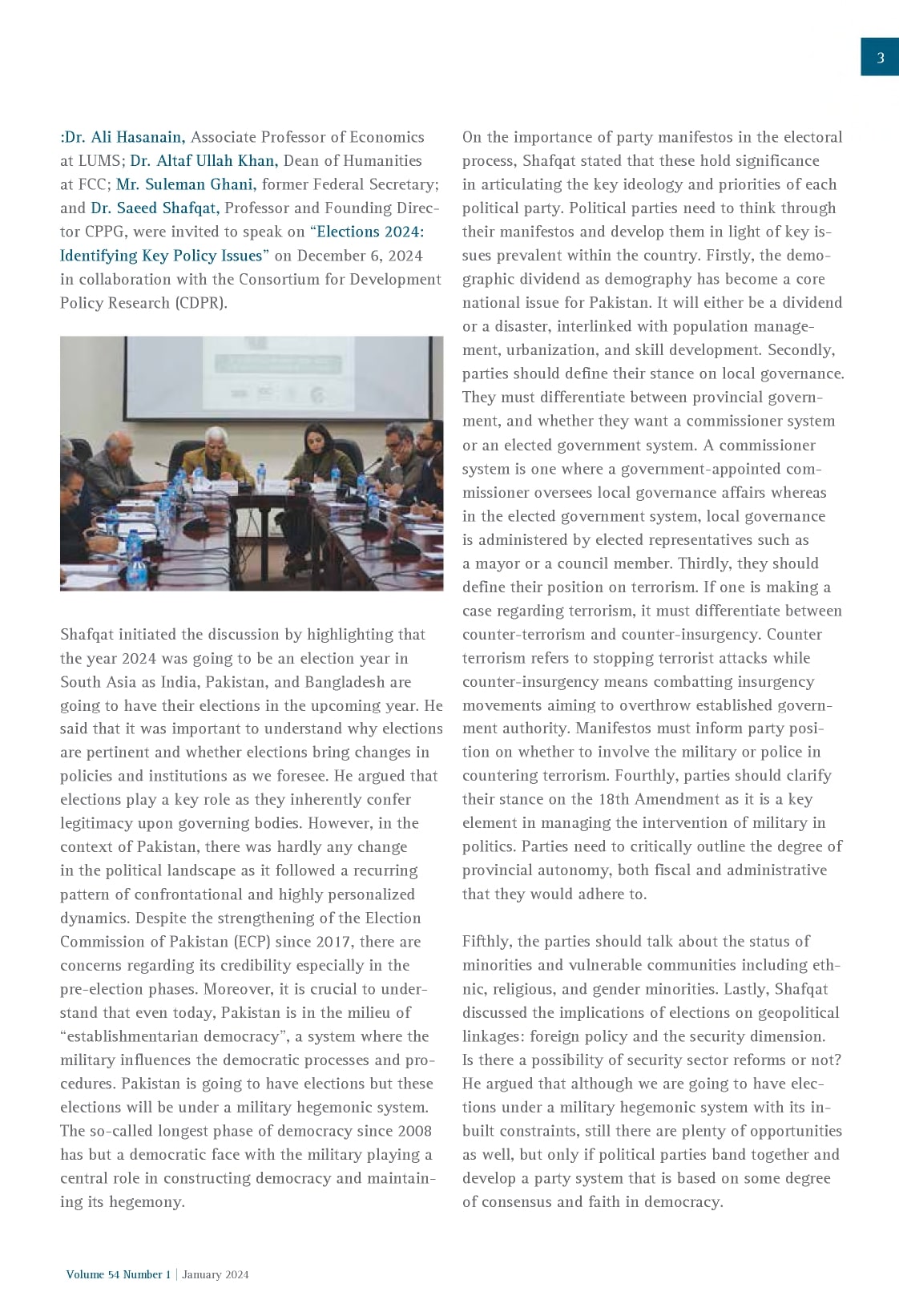
Elections 2024: Identifying Key Policy Issues
INTRODUCTION
Shafqat initiated the discussion by highlighting that the year 2024 was going to be an election year in South Asia as India, Pakistan, and Bangladesh are going to have their elections in the upcoming year. He said that it was important to understand why elections are pertinent and whether elections bring changes in policies and institutions as we foresee. He argued that elections play a key role as they inherently confer legitimacy upon governing bodies. However, in the context of Pakistan, there was hardly any change in the political landscape as it followed a recurring pattern of confrontational and highly personalized dynamics. Despite the strengthening of the Election Commission of Pakistan (ECP) since 2017, there are
concerns regarding its credibility especially in the pre-election phases. Moreover, it is crucial to understand that even today, Pakistan is in the milieu of “establishmentarian democracy”, a system where the military influences the democratic processes and procedures. Pakistan is going to have elections but these elections will be under a military hegemonic system. The so-called longest phase of democracy since 2008 has but a democratic face with the military playing a central role in constructing democracy and maintaining its hegemony. On the importance of party manifestos in the electoral process, Shafqat stated that these hold significance in articulating the key ideology and priorities of each political party. Political parties need to think through their manifestos and develop them in light of key issues prevalent within the country. Firstly, the demographic dividend as demography has become a core national issue for Pakistan. It will either be a dividend or a disaster, interlinked with population management, urbanization, and skill development. Secondly, parties should define their stance on local governance. They must differentiate between provincial government, and whether they want a commissioner system or an elected government system. A commissioner system is one where a government-appointed commissioner oversees local governance affairs whereas in the elected government system, local governance is administered by elected representatives such as a mayor or a council member. Thirdly, they should define their position on terrorism. If one is making a case regarding terrorism, it must differentiate between counter-terrorism and counter-insurgency. Counter terrorism refers to stopping terrorist attacks while counter-insurgency means combatting insurgency movements aiming to overthrow established government authority. Manifestos must inform party position on whether to involve the military or police in countering terrorism. Fourthly, parties should clarify their stance on the 18th Amendment as it is a key element in managing the intervention of military in politics. Parties need to critically outline the degree of provincial autonomy, both fiscal and administrative that they would adhere to.
Citations

